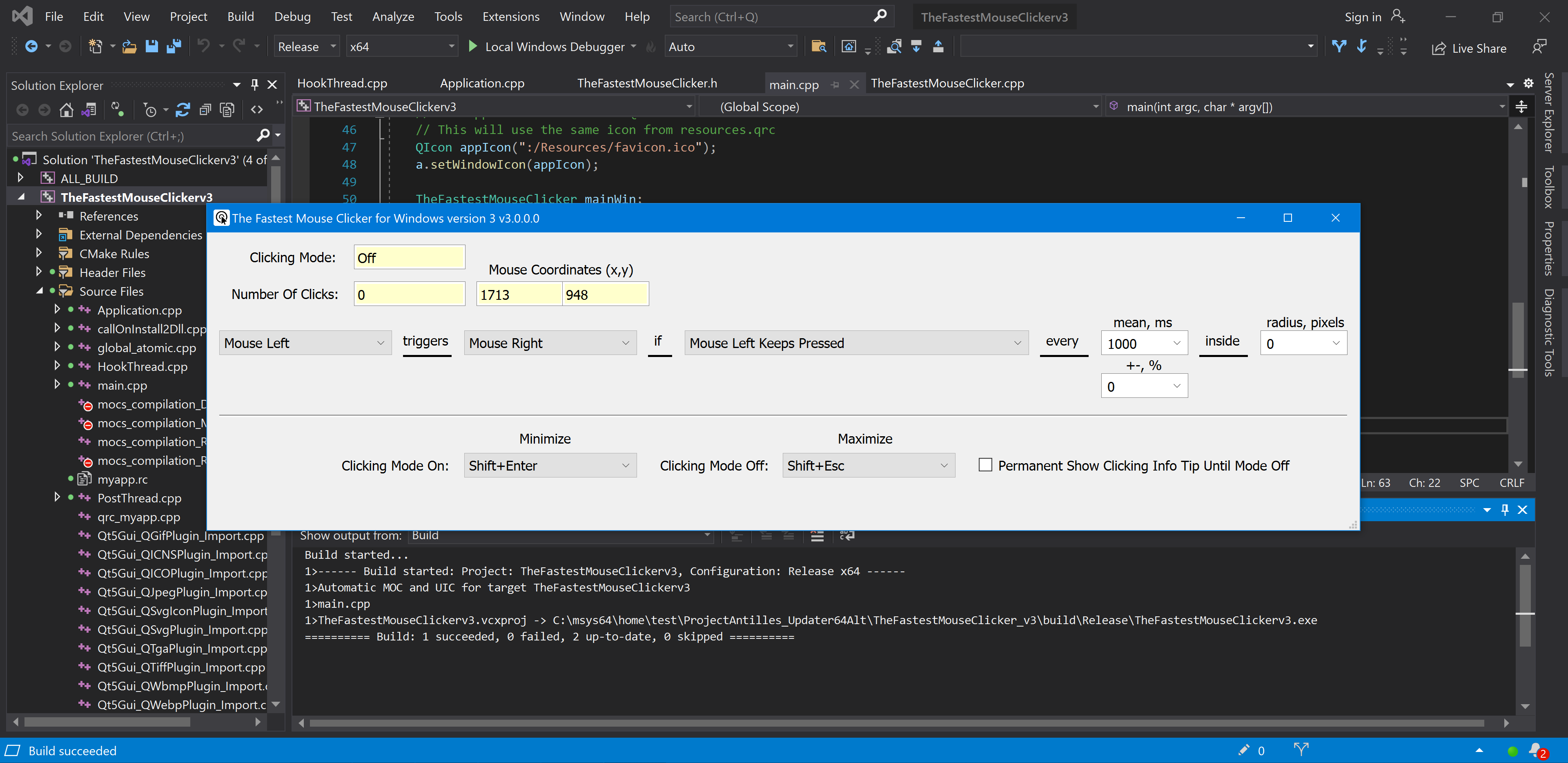 The Fastest Mouse Clicker for Windows | Official Site
The Fastest Mouse Clicker for Windows | Official Site
The fastest auto-clicker for Windows PC. 100000 clicks per second reached by arrayed Win32 SendInput(). GUI, command line, random clicks, and record/play sequences of clicks
Download the latest version : 3.0.0.0
( mirror ) - read ChangeLog
Github:
180
, 34
, 62947416
( Gitlab )
Updated : Dec 07 2025

Site map
- windows-2048 | Home
- The Fastest Mouse Clicker for Windows
- The Fastest Mouse Clicker for Windows | Best Auto Clicker Settings for Popular Games
- The Fastest Mouse Clicker for Windows | Click Speed Test
- The Fastest Mouse Clicker for Windows | Comparison
- The Fastest Mouse Clicker for Windows | Disambiguation
- The Fastest Mouse Clicker for Windows | Features
- The Fastest Mouse Clicker for Windows | Help How To Use
- The Fastest Mouse Clicker for Windows | Mouse Polling Rate
- The Fastest Mouse Clicker for Windows | Multiple Display Setups
- The Fastest Mouse Clicker for Windows | Screenshots
- The Fastest Mouse Clicker for Windows | Source Code
- The Fastest Mouse Clicker for Windows | Technology
- windows-2048 | CV/Resume
The Fastest Mouse Clicker for Windows | Source Code
The fastest auto-clicker for Windows PC. This app has been written in vanilla C/C++ with Win32 API calls described in official Microsoft documentation
Updated : Dec 07 2025.
Complete source code with comments can be found on Github and Gitlab.
The Fastest Mouse Clicker v3.0.0.0 (cross-platform Qt edition)
That is already in production.
I have compiled a 64-bit minimalistic, static/static-runtime build of Qt v5.15.5 (LTS) made for Windows 7 to 11 under MSVC 2019 compiler.
Configure options:
C:\qt-src-5.15.5\configure -static -static-runtime -qt-zlib -qt-libjpeg -qt-libpng -qt-freetype -qt-pcre -qt-harfbuzz -no-sse4.1 -no-sse4.2 -no-avx2 -no-avx512 -no-pch -no-ssl -no-openssl -no-opengl -qpa windows -confirm-license -opensource -release -make libs -make tools -prefix c:/qt-5.15.5-static
Download qt-5.15.5-static.zip.
Resulting MS Visual Studio 2019 screenshot joining Qt and libuiohook:
